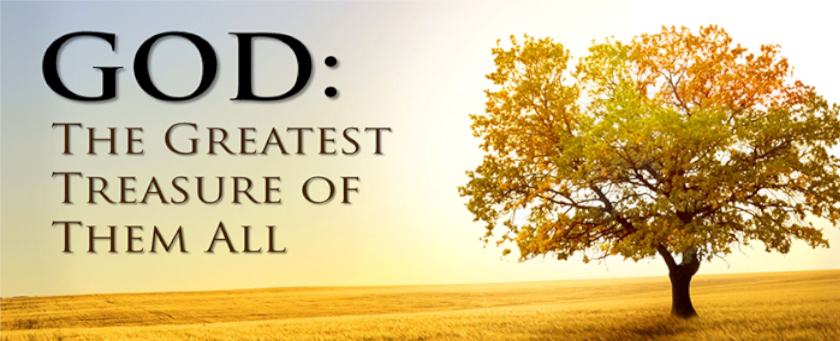The Four Last Things: Death, Judgment, Heaven, & Hell
Seventeenth Sunday of Ordinary Time, Year A

Readings:
1 Kgs. 3:5, 7-12; Ps. 119; Rom. 8:28-30; Mt. 13:44-52
“The angels will go out and separate the wicked from the righteous and throw them into the fiery furnace, where there will be wailing and grinding of teeth.” Stern words from our Blessed Lord, who for the second time in a row speaks of the value of the kingdom of heaven. Those who are wise, like King Solomon, and lead a life of faith by keeping the commandments are welcomed into the kingdom, while those who lead a life of wickedness and sin are cast out. What Jesus is describing in the latter portion of today’s gospel is summed up by the Church’s teaching on the four last things: Death, judgment, heaven, and hell. What will happen after we die? The Church teaches that after our death there will be a particular judgment. This judgment is for our life—the things we did, whether good or evil. In a sense, every soul will have to be sorted like the fish in today’s gospel. The Lord will reveal all the good we did and all the sins we committed—most especially the sins we failed to confess during our time on earth. Such sins will be particularly difficult to endure because the Lord will reveal not just the damage they caused us personally, but the damage they caused those around us, our loved ones, our friends, co-workers and members of our community. Perhaps the greatest sin we could commit would be refusing to be reconciled to God. Jesus gave us a way to be reconciled and yet out of pride, or fear, or stubbornness, we sometimes choose to hold on to the sin, refusing to let it go, rather than admit we did wrong, go to the confessional, and be forgiven. Jesus speaks of casting the wicked out of heaven to shock those who are listening into realizing that they could miss out on the kingdom if they give in to sin rather than keep the commandments. And so, for every sin we fail to confess, we will be judged accordingly.
Of course, it is good for us to qualify the different types of sin. St. John describes two types. He says all wrongdoing is sin, but some sins are deadly, while others not (1 Jn. 5:17). “Deadly” sin is also known as mortal or grave sin. ‘Mortal’ has to do with our flesh, ‘grave’ has to do with where we go when we die. The Catechism of the Catholic Church describes mortal sin as an action that “destroys charity in the heart of man by a grave violation of God’s law; it turns man away from God…by preferring an inferior good to him” (CCC 1855). It then goes on to say, “Venial sin allows charity to subsist, though it offends and wounds it” (CCC 1855). So, on one hand we have a type of sin that destroys charity by some violation of God’s law—think the 10 Commandments—and turns us away from God; on the other hand, we have a sin that offends and wounds charity. An example of mortal sin would be to murder an innocent person. This breaks God’s law: Thou shall not kill. An example of a venial sin, however, would be to offend a family member out of anger—to say something hurtful. Jesus encourages us not to get angry with one another in his Sermon on the Mount. Why? Because our anger offends others and wounds our love.
All these will be brought before us at the time of our particular judgment. And it will not have to be Christ who passes judgment on us, all he will do is reveal what we have done and we will have to condemn ourselves. If only we could all realize how great a gift has been given to us in the Sacrament of Reconciliation—that we may let go of the sin that has weighed us down and allow Christ to raise us up. He says, “Come to me all you who labor and are burdened and I will give you rest.”
Of course, after our judgment, we will be faced with one of two destinations: heaven or hell. When Moses led the people to the Promise Land, he could not enter in because of his own sin against God. So, he leaves the people with this admonition: “I have set before you life and death, the blessing and the curse. Choose life, then, that you and your descendants may live, by loving the LORD, your God, obeying his voice, and holding fast to him” (Dt. 30:19-20a). Can we do as Moses says? Can we chose life by loving the Lord, obeying his voice, his commandments, his way?
St. Paul says, “We know that all things work for good for those who love God, who are called according to his purpose.” We have all been called by our baptism to love the Lord with our whole heart, our whole strength, our whole soul, and our whole mind. We have also been called to love our neighbor as ourself. The law and the prophets are summed up in these two great commandments. And so, if we are struggling with a particular sin whether mortal or venial, let us confess it before it is too late. When we go to confession, we receive forgiveness for all sins. And let us lead a life of faith in all charity, so that everyone we encounter will see something in us that so much of the world is lacking—they will see how we prepared a place for Christ to dwell in us, in a Spirit of love. That is Holy Communion—letting go of sin and preparing our hearts for Christ to dwell in us. This is truly our greatest treasure.





Share this post
Twitter
Facebook
Pinterest
Email